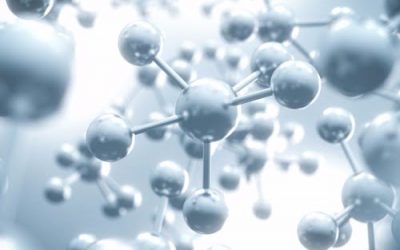 Gene therapy represents an exciting new frontier being explored for treating a number of diseases. Currently, gene therapy is being used in a clinical trial to treat one of the rare forms of inherited neuropathy (IN), giant axonal neuropathy (GAN). Because of the potential gene therapy holds for treating a range of CMT/IN mutations-including the rarer ones—HNF is excited to announce a collaboration with the University of North Carolina at Chapel Hill and The Jackson Laboratory to begin the development of gene therapy approaches for Charcot-Marie-Tooth (CMT) and Inherited Neuropathies (IN).
Gene therapy represents an exciting new frontier being explored for treating a number of diseases. Currently, gene therapy is being used in a clinical trial to treat one of the rare forms of inherited neuropathy (IN), giant axonal neuropathy (GAN). Because of the potential gene therapy holds for treating a range of CMT/IN mutations-including the rarer ones—HNF is excited to announce a collaboration with the University of North Carolina at Chapel Hill and The Jackson Laboratory to begin the development of gene therapy approaches for Charcot-Marie-Tooth (CMT) and Inherited Neuropathies (IN).
To start, our initial gene therapy work will focus on CMT type 6, which is caused by a recessive mutation in the C12orf65 gene and for which there is currently no treatment. CMT type 6 presents in patients with many of the typical symptoms associated with most types of CMT, but usually includes additional, significant impacts on vision and breathing that further challenge a patient’s quality of life. And, unlike other forms of CMT, CMT type 6 is ultimately fatal.
The CMT type 6 research that HNF is funding aims to replace the nonfunctional gene with a working copy. Dr. Robert Burgess, lead co-investigator for this project, has developed a CMT type 6 mouse model to conduct a proof of concept study to determine the viability of using this approach to treat the disease. Dr. Steven Gray, assistant professor at the University of North Carolina, will be developing the gene therapy vector to be tested using this unique mouse model. We are pleased to have Dr. Gray on this project’s team as his previous work was responsible for bringing the GAN gene therapy to a clinical trial. Ensuring the success of this gene therapy approach will depend on getting everyone—health care providers and CMT type 6 patients and their families— involved! Besides the work in the CMT type 6 mouse, patient specimens are extremely valuable for research. HNF will need to obtain skin fibroblasts from CMT type 6 patients that have a confirmed diagnosis. HNF will rely on its Centers of Excellence network and other medical institutions to obtain the skin fibroblasts needed to be sent to The Jackson Laboratory for further testing.
Advancing a research project like this is a major undertaking requiring significant human, physical, and financial resources— however, the possibilities of achieving significant outcomes are unprecedented. To secure the ability of this project’s momentum, HNF has launched the Gene Therapy Fund to support this project’s efforts to tackle additional types of CMT/IN that warrant a gene therapy approach to treat CMT. The Gene Therapy Fund will be used and supported with the collaboration of Lori Sames (co-founder of Hannah’s Hope Fund and the tireless champion of the first gene therapy ever used for any form of IN), UNC and The Jackson Laboratory.
We need your help! Here’s how to get involved: I support gene therapy research, and I want to enroll as a patient! If you are a patient with CMT and want to be part of this new initiative, please join the Global Registry for Inherited Neuropathies (GRIN). If you have any type of CMT/IN or do not know your type, join here: CLICK HERE
If you are interested in having your mutation added to the list or in championing a gene therapy approach for your type of CMT/IN, please contact Allison Moore at [email protected].
I support gene therapy research, and I want to make a donation!
Your donations are crucial to making this research possible.





I have CMT but not sure what level. I live in the Raleigh, NC area and would be interested in trial at UNC. I have issues with atrophy in my lower legs, hands and vision.
I have cmt 1b and live near Chapel Hill. I lead a large group of individuals with cmt. Great news!
I have CMT, but do not know what type. I wear a brace for drop foot on my left leg. My left leg is significantl smaller than my right leg. I also have significant balance issues. I cannot stand on my toes and I walk on the heels of both feet.
I would like to have my mutation considered. I am 75 year of age and first noticed symptoms about fifteen years ago when I first noticed that I was unable to stand on my toes.
I would like to participate in the clinical trial if possible.